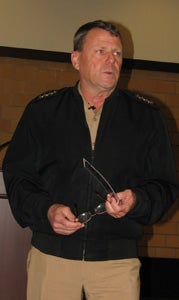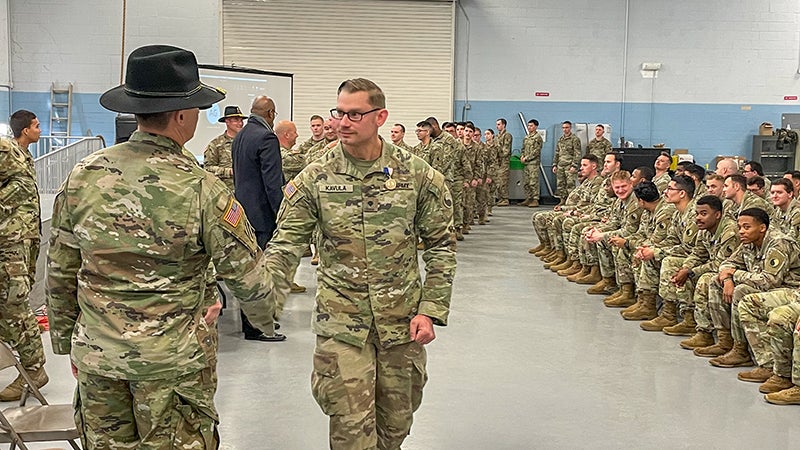Admiral: ‘They like it here’
Published 11:15 pm Wednesday, November 5, 2014
U.S. Navy Adm. Bill Gortney gave his thoughts on homeland security, international military affairs and the state of Suffolk as a military community during the Suffolk Foundation’s annual community forum and luncheon on Wednesday.

U.S. Navy Adm. Bill Gortney speaks at the Suffolk Foundation community forum and luncheon at the Suffolk Center for Cultural Arts on Wednesday.
Gortney, formerly the director of the Joint Staff, said in response to a question that he hasn’t heard “a single complaint” from military personnel about the quality of life in Suffolk. Its only issue is that it’s too far away from bases in Norfolk and Virginia Beach.
“And trust me, they would tell me,” he added. “They really like it here, but they don’t live here if they’re stationed in Oceana or Little Creek.”
He later added that the schools, particularly elementary schools, are a big draw in any community for military families.
“They pick a school division, they pick a school, and that’s where they find a home,” he said.
Most of Gortney’s talk, however, focused on issues farther away from home.
After 13 years of war, he said he does not see a better security environment for the United States than the country was in before.
“We were at war long before then,” he said. “We just didn’t recognize it.”
He mentioned foreign powers like North Korea and Russia — which he called a “whackocracy” and a “thugocracy,” respectively — along with Chinese territorial disputes, are creating an unstable environment in Asia and eastern Europe.
In the Middle East, Gortney said, ISIS must be stopped before it brings its terror to American soil.
“We don’t want to have a home field advantage in this fight,” Gortney said. “I’m all about the away game.”
Gortney said some foreign leaders are bullies.
“Usually where there’s a crisis, there’s a bully,” he said. “The only thing bullies understand is a bigger bully.”
The American military stationed off the coast “causes the other bully to blink,” he said.
Speaking about military cost-saving initiatives, Gortney said the Navy is expensive, because it’s “capital-intensive.” He said any cost-saving measures taken should be reversible in case the equipment is needed again.
One of the biggest stressors on military families is time away from home, and Gortney said he wants to work on getting ship maintenance schedules worked out so the average deployment is only about seven months, rather than the current nine.
Nine-month deployments are “not sustainable,” he said. “If we lose the families, we lose (the sailors). We want to bring predictability back into their lives.”
Responding to a question about what keeps him up at night, Gortney — after first quipping that his blind, diabetic dog keeps him up — responded that he sleeps “pretty well at night.”
“I feel pretty good, because we have your support, and you continue to give the very best of the youth of America to us,” he said.





